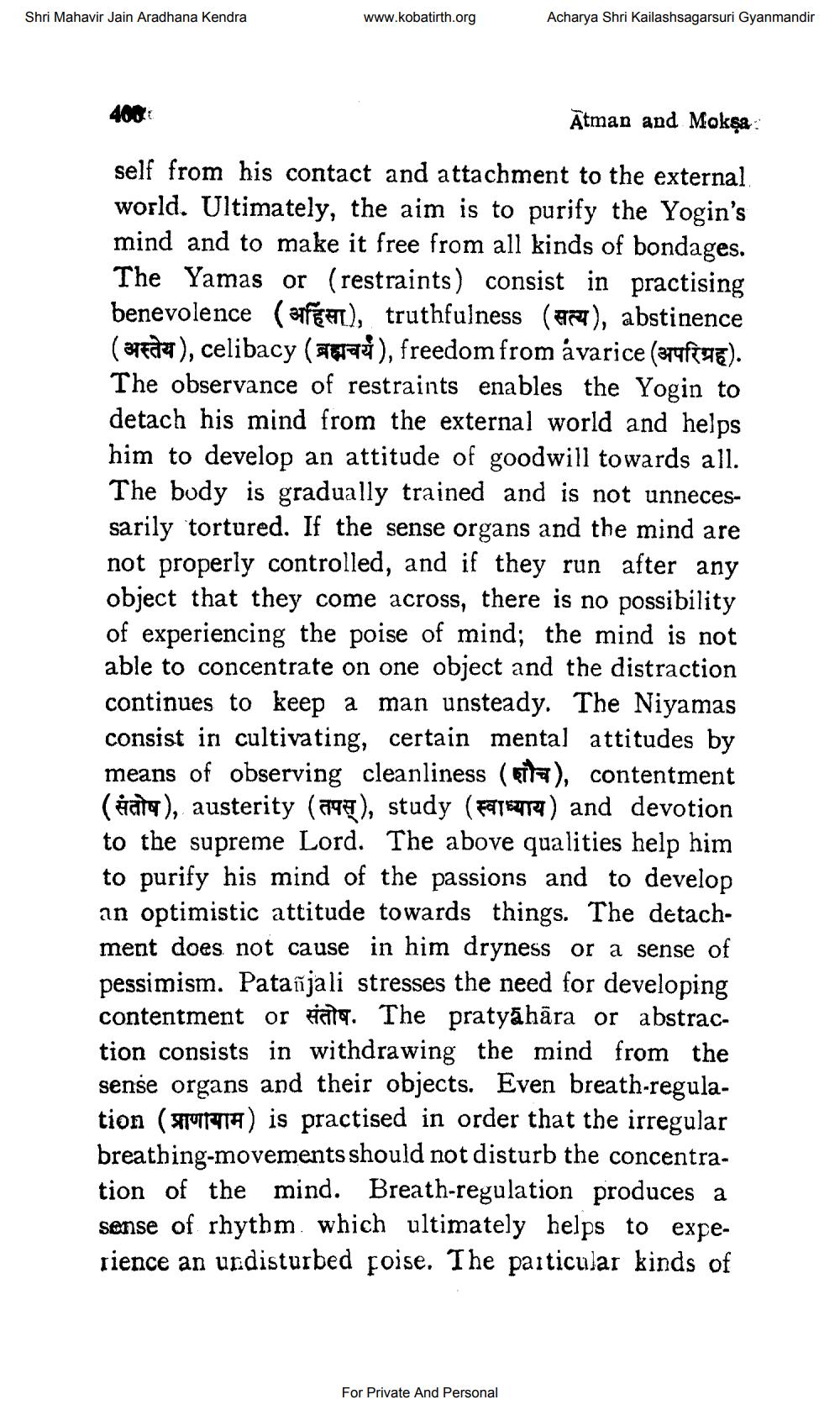________________
Shri Mahavir Jain Aradhana Kendra
www.kobatirth.org
400
Atman and Mokṣa
self from his contact and attachment to the external. world. Ultimately, the aim is to purify the Yogin's mind and to make it free from all kinds of bondages. The Yamas or (restraints) consist in practising benevolence (af), truthfulness (), abstinence ( अस्तेय), celibacy ( ब्रह्मचर्यं ), freedom from avarice (अपरिग्रह ). The observance of restraints enables the Yogin to detach his mind from the external world and helps him to develop an attitude of goodwill towards all. The body is gradually trained and is not unnecessarily tortured. If the sense organs and the mind are not properly controlled, and if they run after any object that they come across, there is no possibility of experiencing the poise of mind; the mind is not able to concentrate on one object and the distraction continues to keep a man unsteady. The Niyamas consist in cultivating, certain mental attitudes by means of observing cleanliness (), contentment (संतोष), austerity (तपस्), study ( स्वाध्याय) and devotion to the supreme Lord. The above qualities help him to purify his mind of the passions and to develop an optimistic attitude towards things. The detachment does not cause in him dryness or a sense of pessimism. Patanjali stresses the need for developing contentment or . The pratyāhāra or abstraction consists in withdrawing the mind from the sense organs and their objects. Even breath-regulation () is practised in order that the irregular breathing-movements should not disturb the concentration of the mind. Breath-regulation produces a sense of rhythm which ultimately helps to experience an undisturbed poise. The particular kinds of
Acharya Shri Kailashsagarsuri Gyanmandir
For Private And Personal




